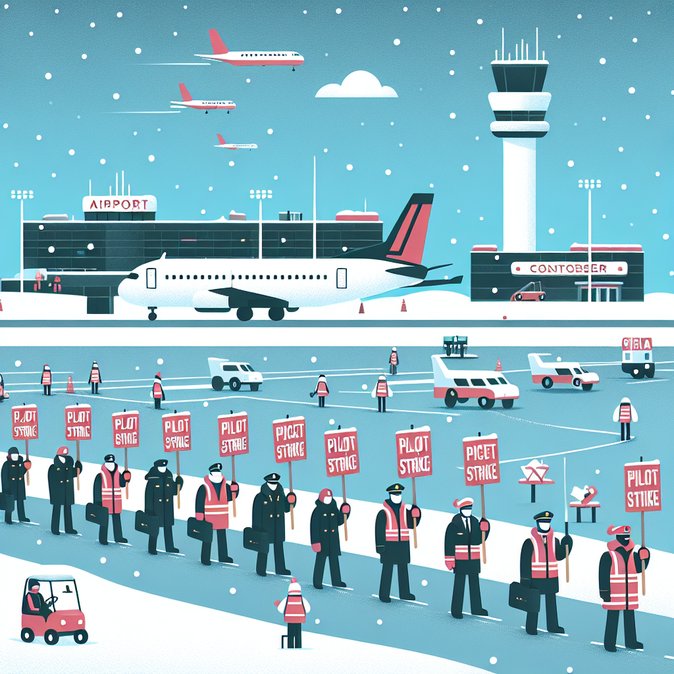
Industrial clouds are gathering over Canada’s busy winter travel season. On 17 November 2025, more than 450 Air Transat pilots joined informational pickets at Montréal-Trudeau Airport, Toronto Pearson and the airline’s Montreal headquarters as they opened a strike-authorization ballot. The vote runs until 2 December and could pave the way for a legal strike as early as 10 December if mediated talks fail.
The labour dispute centres on wage modernization, scheduling predictability and pension improvements. Negotiations began in January and entered federal conciliation on 19 September; the statutory 21-day cooling-off period starts on 19 November. Should pilots secure a “yes” mandate, union leaders can call a strike after the cooling-off expires, coinciding with peak holiday traffic and early ski-charter operations.
![Air Transat Pilots Launch Strike-Authorization Vote, Stage Pickets in Montreal and Toronto]()
For corporate travel managers, potential disruption looms large. Air Transat serves more than 60 international routes—principally sun destinations and key European business/leisure markets—from hubs in Montreal, Toronto and Quebec City. Multinationals relying on the carrier for assignee home-leave flights or intra-company transfers to France, the U.K. and Mexico should formulate contingency plans, including rebooking blocks on partner airlines or shifting to Air Canada and WestJet.
The dispute unfolds against a wider backdrop of labour activism in Canadian aviation: flight-attendant talks at Air Canada went to binding arbitration in August, while WestJet narrowly averted a pilot strike in May. Analysts warn that a Transat shutdown could tighten already constrained winter lift, driving up last-minute fares and complicating cargo movements for just-in-time supply chains.
Employers should monitor federal mediation updates and advise travelling staff to book flexible fares or maintain virtual-meeting alternatives from 10 December onward. If a strike is declared, Canada’s labour minister retains the option of referral to the Canada Industrial Relations Board, but such intervention typically follows significant service disruptions.
The labour dispute centres on wage modernization, scheduling predictability and pension improvements. Negotiations began in January and entered federal conciliation on 19 September; the statutory 21-day cooling-off period starts on 19 November. Should pilots secure a “yes” mandate, union leaders can call a strike after the cooling-off expires, coinciding with peak holiday traffic and early ski-charter operations.

For corporate travel managers, potential disruption looms large. Air Transat serves more than 60 international routes—principally sun destinations and key European business/leisure markets—from hubs in Montreal, Toronto and Quebec City. Multinationals relying on the carrier for assignee home-leave flights or intra-company transfers to France, the U.K. and Mexico should formulate contingency plans, including rebooking blocks on partner airlines or shifting to Air Canada and WestJet.
The dispute unfolds against a wider backdrop of labour activism in Canadian aviation: flight-attendant talks at Air Canada went to binding arbitration in August, while WestJet narrowly averted a pilot strike in May. Analysts warn that a Transat shutdown could tighten already constrained winter lift, driving up last-minute fares and complicating cargo movements for just-in-time supply chains.
Employers should monitor federal mediation updates and advise travelling staff to book flexible fares or maintain virtual-meeting alternatives from 10 December onward. If a strike is declared, Canada’s labour minister retains the option of referral to the Canada Industrial Relations Board, but such intervention typically follows significant service disruptions.


